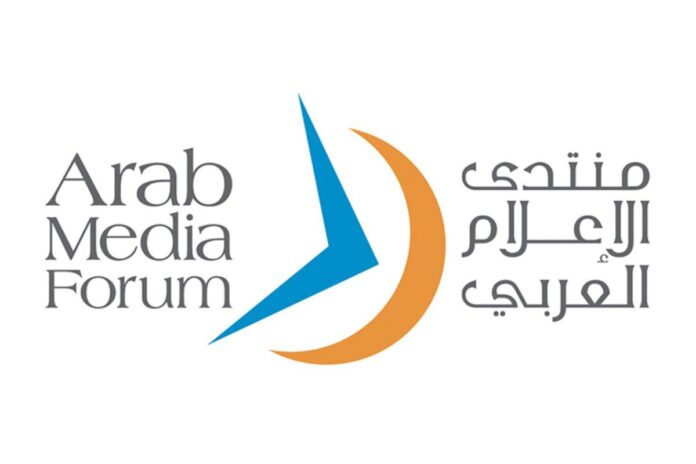Panelists participating in discussions at the 21st Arab Media Forum (AMF) deliberated on the profound wave of change set to sweep across the media landscape.
In a session titled ‘Arab Media in the Age of AI’, which featured Muna Busamra, Editor-in-chief of Emarat Al Youm newspaper, Dr. Ebtesam Almazrouei, Executive Director, Technology Innovation Institute, Dr. Nizar Habash, Professor of Computer Science, NYU Abu Dhabi, and moderated by Sami Kasmi, anchor at Sky News Arabia, panelists explored the impact of the rapid technological changes in media, and how media establishments should react to such challenges. Panelists pointed out that Arab media companies are still lagging behind in terms of adopting artificial intelligence (AI) tools for content creation. What’s even more concerning is that some of them have yet to fully embrace the digitalisation process, raising significant concerns about their future. They said that the UAE is leading the path in this domain, where AI has contributed to minimising spelling errors when editing in Arabic, with 80% of mistakes spotted using AI.
In a session titled ‘The Future of Journalism in the Web3 and Metaverse Era,’ a lively discussion unfolded regarding the influence of technology on the journalism landscape and the potential implications of integrating artificial intelligence technology into the media sector. Panelists underscored the swift digital transformations reshaping the industry and their consequences on the news sector.
The session featured a diversity of viewpoints, with some arguing that advanced technologies empower media professionals to improve their work, while others expressed concerns about the impact on job opportunities within the media field.
In a session titled ‘Journey to 2052: The Future of Arabic News,’ panelists concurred that newsrooms within TV stations are set for profound change in the coming years, aligning with the rapid technological advancements, digital evolution, and the increasing influence of Artificial Intelligence.
The session, moderated by Reem Al Marri, Director of the News Centre at Dubai Media Incorporated, featured Nabeel Al Khatib, General Manager of Asharq News Service, Nakhla Al Hajj, General Manager of Blinks, and Nart Bouran, a media expert.
Participants emphasised that the conventional methods of producing news content for television channels will change. They underscored the importance of preparing for transformations within the news industry as it aligns with the anticipated digital media trends of the future.
The session also stressed the importance of transforming newsrooms in news channels into spaces dedicated to producing news content in various formats suitable for both traditional channels and the diverse array of digital platforms. Speakers emphasised the urgency for current newsrooms to proactively prepare for the future, especially given that more than 60% of the Arab world’s population is composed of young people who primarily access information through digital platforms.
Speakers at another AMF session titled ‘A New Global System’ came out with vastly different perspectives. The discussion featured Abdulaziz Alkhamis, writer and researcher in Arab affairs policy, Dr. Mohammed Al-Rumaihi, Professor of Sociology at University of Kuwait, Eyad Abu Shakra, Columnist at Asharq Al Awsat, Ahmed El-Moslemany, President of the Cairo Centre for Strategic Studies, with Nawfar Ramoul, anchor at Dubai Media, in the moderator’s role. Some panelists voiced the expectation that the current global system, led by the west, will persist for the next few years due to their robust economies. These views were countered by others who argued that a new world order is emerging, characterised by a convergence of the northern and southern hemispheres, with the influence of economic blocs on the rise.
News Source: Emirates News Agency
